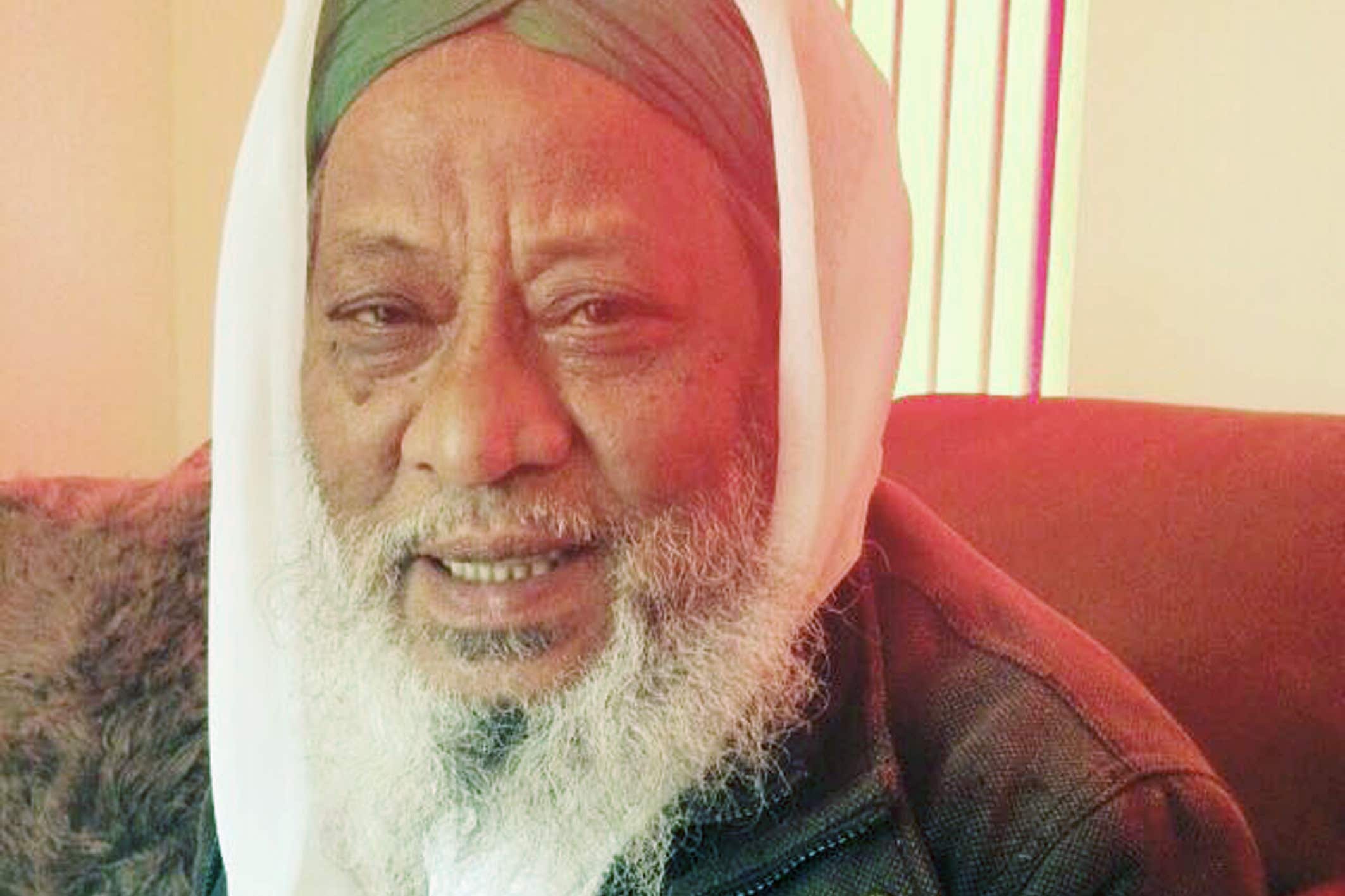Islamic State fanatics called imam ‘Voldemort’
Public inquiry opens into possible intelligence failures over murder of Jalal Uddin

Two Islamic State extremists who planned the murder of an imam referred to him as “Voldemort” who was engaging in “black magic”, a public inquiry heard.
Father-of-seven Jalal Uddin, 71, died in a “brutal and ferocious” attack with a hammer in a children’s play area in Rochdale, Greater Manchester, on February 18 2016, because his religious practices were deemed sacrilegious by his killers.
An inquiry examining whether intelligence failures contributed to Mr Uddin’s death by failing to spot and stop his extremist killers, sat in public for the first time today.
The hearing, at Liverpool Crown Court, first sat at the start of the month to hear evidence in “closed” sessions, not open to press or public.
Inquiry chairman Judge Thomas Teague KC ruled some evidence must not be made public and heard only in private sessions to prevent harm to the detection and prevention of terrorism and public safety.
Mohammed Kadir, then 24, is believed to have struck the fatal blows with a hammer and had planned the killing with former Manchester United steward Mohammed Syeedy, then 21, who drove Kadir to the scene and helped carry out surveillance on their target.
Kadir fled the UK three days after the killing and is thought to have headed to Syria, while Syeedy was in September 2016 convicted of murdering Mr Uddin and sentenced to life with a minimum term of 24 years.
Syeedy’s trial was told both men were sympathisers of the terrorist group calling itself Islamic State and consumed by hatred of Mr Uddin for his practise of Ruqyah, a form of exorcism, which the terror organisation considered “black magic”.
A third man, Mohammed Syadul Hussain, was convicted in April 2017 of helping Kadir leave the country and jailed for five years.
Opening the hearing, chairman Judge Teague said it was “deeply unfortunate” more than eight years had passed since Mr Uddin’s death and for “compelling legal reasons” it is impossible to hear all the evidence in public.
Jason Beer KC, counsel to the inquiry, said Mr Uddin, who first came to the UK from Bangladesh in 2002, was a scholar of the Koran and a very well-regarded member of the community in Rochdale and formerly an imam at the local Jalalia Mosque.
But his practice of Ruqyah, involving using amulets, made him a target for IS supporters, who believed Islam should be practised as in the seventh century.
Mr Beer said: “IS is said to have regarded this practise as black magic. The men who murdered Mr Uddin were supporters and followers of IS.
“The murder was motivated by their hatred of Mr Uddin as a practitioner of Ruquya.”
Mr Beer said in some mobile phone exchanges between the two that Mr Uddin was referred to as Voldemort, a reference to Lord Voldemort, a fictional character in the Harry Potter books.
A previous hearing heard from October 2015, Kadir was assessed and continued to be assessed as a person of high risk and significant concern, and latterly as someone who posed a risk of acting on his Islamist extremist aspirations.
And after police raided Syeedy’s home following the murder, phones and laptops revealed IS propaganda and material.
These included photos of both men doing the one finger IS salute, photos of IS flags draped over road signs in Rochdale and a photo of Syeedy with an IS flag on a street with a mosque.
In August 2015, Mr Uddin’s property including a book he used during Ruqyah was stolen from Jalalia Mosque and destroyed.
Kadir and Syeedy also planned to report him to the Border Force, as Mr Uddin was in the UK illegally.
But the inquiry heard in December 23, 2015, Mr Uddin was photographed with Simon Danczuk, the then-MP for Rochdale, at the door of Jalalia Mosque.
A phone exchange between the two plotters and others, stated: “Oh dear. Voldemort is never going to be busted by the immigration service now.”
Two months later, the two men launched the attack, leaving Mr Uddin dead.
Around 2,000 mourners attended his funeral, paid for by the local community.
The inquiry was adjourned until Tuesday morning.
Bookmark popover
Removed from bookmarks